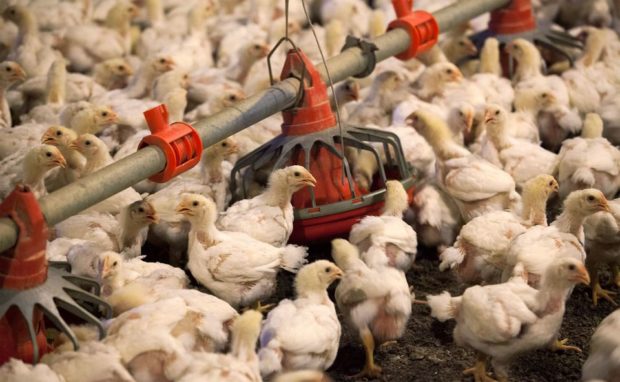
MANILA, Philippines — The House of Representatives has vowed to review laws relating to agriculture, after a representative from the poultry industry complained that enforcement of provisions that could have been helpful to farmers and growers have been weak.
In a press briefing on Tuesday, Elias Jose Inciong of the United Broiler Raisers’ Association (UBRA) asked House Speaker Ferdinand Martin Romualdez and ACT-CIS party-list Rep. Erwin Tulfo to start using Congress’ oversight function in reviewing laws, mentioning in particular Republic Act No. 8435.
Inciong said that Section 40 of RA 8435 or the Agriculture and Fisheries Modernization Act of 1997 mandates the Department of Agriculture (DA) to create a National Marketing Assistance Program but it was supposedly neglected by past administrations of the agency.
READ: House execs want to check reason for high cost of basic commodities
“This is my view Cong. (Erwin) and Speaker, the first topic during the oversight are the laws geared toward the producers and the consumers which are not enforced. For example, the Agri-Fisheries Modernization Act, you need to stress in the oversight Section 40 on Marketing, there’s a Marketing Assistance Program there which assures the producers that they get a fair price, at the same time the consumers will also get a fair price,” Inciong said in a mix of English and Filipino.
READ: Manufacturers assure House: No price increase on basic goods
Not being enforced
“That is not being enforced, there is a marketing umbrella in that section which DA should have convened. But all these years, all these decades, that was neglected. The law, that is the fundamental law for agriculture […] in fairness to your predecessor sir in Congress, they have passed good laws but they are not enforced,” he added.
Aside from this, Inciong also complained that the government’s view sometimes contradicts with the spirit of the law—claiming that RA 8435 seeks to invigorate the local industry for self-sufficiency, but the National Economic and Development Authority (Neda) allegedly relies on importation.
“We need oversight, that’s where we are asking for help from the House, because sometimes in law, the doctrine of the executive is different from the sense of the law. For example, in this law that I mentioned, it emphasizes production which is what is being done in the whole world,” he said.
“Unfortunately our Neda emphasizes importation—this is my personal and our organizational stand—the root cause of our problems now is the neglect of the sector, because of the emphasis of Neda in trade and importation, or to rely on shortcuts. When the prices are high, import,” he added.
Check on the law
Romualdez assured Inciong that they would check on the said law, noting that a comprehensive review will be done.
“It’s caught my attention, I think we have to do a review of the body of laws on agriculture, on manufacturing, the traders […] I think we’ll do a comprehensive review,” he said.
Tulfo, who is also Deputy Majority Leader, said that the review may start once session resumes on April 29.
“I believe it will be (done) when session opens again on the 29th, we will start doing that. And I will have to remind the Speaker, and of course I will talk to [Rep.] Mark Enverga, our (agriculture) committee chair,” he said.
Tulfo earlier admitted that Romualdez initiated the call for a meeting with stakeholders from the farming, manufacturing, and retailing industry amid fears that prices of basic goods may rise sharply.
During the same briefing earlier, both House leaders vowed to check on the concerns raised, especially concerns that price increases did not happen on the farming and manufacturing and retailing side.
Despite the concerns, Tulfo said they were able to secure a commitment from manufacturers that there would be no price increases for basic commodities or items that indigent consumers really need.